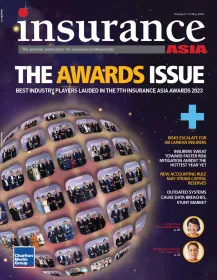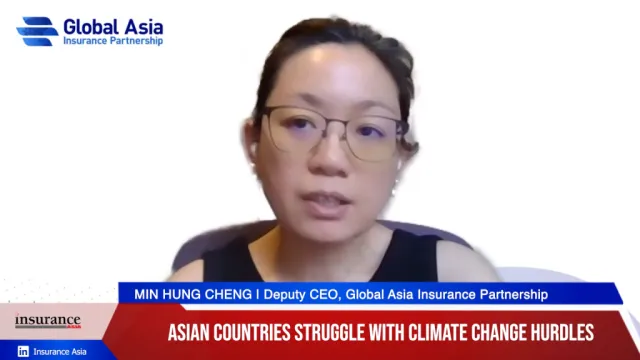
What risks do select APAC markets fear most this year?
Global Insurance Law Connect unveiled four common risks the world is facing.
Insurers in 2024 are facing significant challenges linked to natural disasters due to climate change, cyber security threats, artificial intelligence, and consumer protection regulations, according to the sixth edition of Global Insurance Law Connect’s annual Risk Radar report.
“We continue to see major trends reshaping the insurance industry globally. Insurers are dealing with climate-driven disruptions, heightened cyber threats, and exploring the opportunities presented by artificial intelligence amidst increased geopolitical risks,” Gillian Davidson, Chair of Global Insurance Law Connect and Partner at Sparke Helmore, said in a press release.
Davidson added, “A new focus this year is on regulatory and compliance challenges related to consumer protection. There is a growing demand for personalised customer experiences, prompting regulators to advocate for greater transparency, stricter insurance practices, and fair treatment of policyholders.”
The report, compiled from insights provided by law firms across 27 countries, highlights key changes and outlooks in the insurance markets globally.
Asia Pacific-picks
Four markets in the Asia Pacific region were analysed, which included Australia, China, India and New Zealand.
Australia's insurance industry is experiencing an upward growth trajectory, expected to continue for at least the next three years.
“Three issues stand out for their importance to the health of the local industry, for their recognition of dynamic industry conditions and for the ability to address the task of ensuring a sustainable insurance market as part of a well-functioning economy: continuing on the path to resilience in the face of ongoing natural disasters; data protection, cybersecurity, and the impact of AI; and regulatory obligations and compliance,” the Risk Radar report said.
China's insurance industry is also on an upward growth trajectory, projected to continue over the next three years. Insurers in China share a positive, resilient, and future-focused outlook on risk mitigation strategies.
ALSO READ: Global trade risks prompt exporters to consider insurance
“In 2024, the introduction of new regulations, such as the Self-Regulatory Guidelines for Listed Companies and the revised PRC Company Law, underscores the government’s commitment to fostering a transparent and sustainable insurance industry. Furthermore, the proliferation of digital technologies is transforming distribution channels, underwriting procedures, and interactions with clients, forcing insurers to adapt and innovate,” the report noted.
“While the market offers prospects for growth, insurers are confronted with challenges such as regulatory compliance, cybersecurity risks, and intensifying competition. Navigating these dynamics requires strategic vision, agility, and a deep understanding of the evolving landscape in China’s dynamic insurance market,” it added.
India currently hosts 25 life insurers, 27 general insurers, 5 health insurers, and 1 reinsurer, with an additional 13 foreign reinsurer branches registered. As of 2022, India ranked as the 10th largest insurance market globally, with a premium volume of $131b (1.9% of global insurance premiums).
It is projected to become the sixth-largest market by 2032, driven by strong economic growth, rising disposable incomes, a young population, increased risk awareness, digital penetration, and regulatory developments.
New Zealand is implementing mandatory reporting of climate-related disclosures for large financial institutions, including insurers. This initiative aims to enhance transparency and disclose climate-related information within financial markets to increase resilience against climate change risks.
The New Zealand insurance market has recently experienced significant impacts from climate change, with 2023 marking the highest volume of weather-related insurance claims in the country's history.











 Advertise
Advertise












